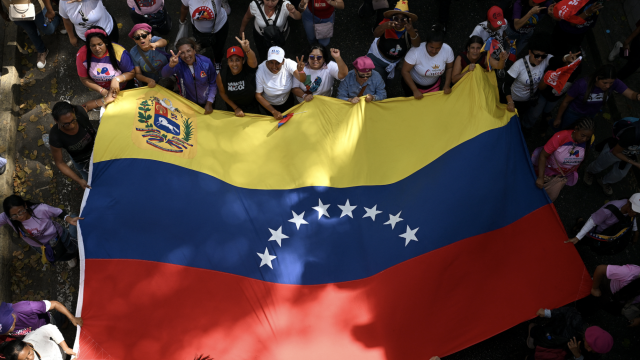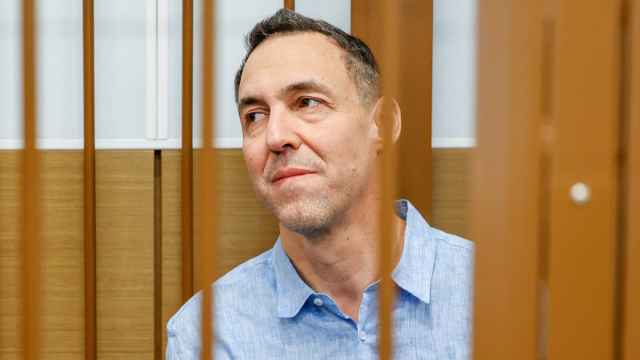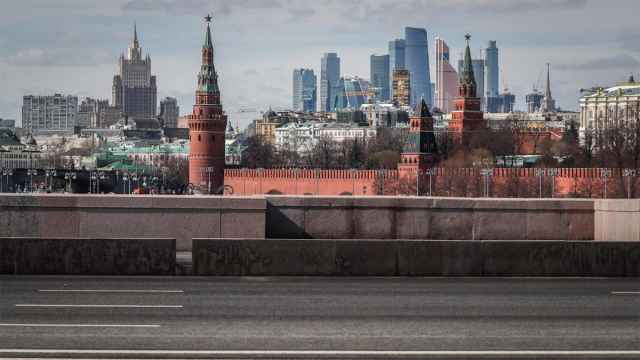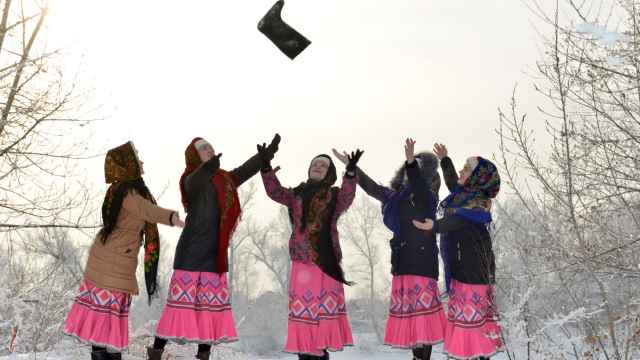A group of Russian opposition figures and civil activists on Thursday announced the formation of a committee advocating for the Russian people to stand in solidarity with Ukrainian protesters waging what they called a "peaceful, anti-criminal revolution" similar to one envisioned by various Russian opposition groups.
At a time when the Russian opposition is struggling to rally support for its own movements, many prominent anti-Kremlin figures such as Alexei Navalny have been closely following the events in Ukraine and expressing support for the protesters opposing Ukrainian President Viktor Yanukovych, an ally of President Vladimir Putin.
But the sentiment expressed Thursday by the newly formed Russian Committee for Solidarity with the Maidan appears to be strongly at odds with Russian public opinion. According to a recent national poll, Russians overwhelmingly view the Ukrainian opposition movement in an unfavorable light.
In a survey conducted by the independent Levada Center, 84 percent of respondents said they considered the Ukrainian protests to be "an attempt at a violent coup," rather than a peaceful movement against a corrupt regime. The poll also found that 24 percent of respondents sympathized with Yanukovych, with only 9 percent supporting the opposition. A majority, 58 percent, said they did not have an opinion.
A majority of respondents also said they believed, like some Russian lawmakers have alleged, that the protesters were being controlled by foreign agents who were attempting to reel Ukraine into their countries' sphere of influence.
The newly formed Maidan solidarity committee insisted that the Ukrainian opposition was acting more independently. Many of the committee's members — who include well-known economist and pundit Andrei Illarionov and political analyst Andrei Piontkovsky — have recently returned from Kiev, and members said at a news conference that what is taking place in Ukraine is a home-grown revolution.
The group said its mission was to set the record straight by directly challenging the media and appealing to fraternal sentiments between the Russian and Ukrainian people.
In a statement distributed at the news conference, the committee said its main objectives were "the dissemination of objective information about the events in Ukraine" and to combat "the manipulation of public opinion carried out by the pro-Kremlin media in order to create a negative image of the Ukrainian people's anti-criminal revolution and the people of Ukraine."
The committee's platform also struck a pro-Slavic chord, saying it would advocate for "the development of people's diplomacy between Russia and fraternal Ukraine … the development of cultural projects and cultural exchanges between the two fraternal peoples."
While Putin has been careful to refrain from publicly taking sides in the conflict, the Kremlin has taken action against the Ukrainian opposition in more subtle ways. State-run media has characterized the Ukrainian opposition almost exclusively in negative terms, and this week Russia tightened customs control at its border with Ukraine, repeating a tactic used last year when the Kremlin put pressure on Kiev over the possible signing of an association deal with the European Union.
Ukraine's international trucking association said in a statement that restrictions were put into effect on Tuesday amid ongoing unrest in Kiev and throughout Ukraine. The congestion at the customs checkpoints along the border have forced some Ukrainian truckers to wait 15 days while their paperwork clears, the trucking association said.
As the violent standoff continued in central Kiev between anti-government protesters and riot police, Yanukovych abruptly announced that he had gone on sick leave with a respiratory ailment, leaving a political vacuum.
Yanukovych's prime minister, Mykola Azarov, resigned on Tuesday. The president, under pressure from Moscow not to tilt policy back toward the West, has yet to appoint a successor. Serhiy Arbuzov, who was Azarov's first deputy, has stepped in as interim prime minister.
Ukraine badly needs a new government. Putin said Wednesday that Moscow would wait until one was formed before fully implementing a $15 billion bailout deal. Anti-government protesters have occupied state buildings and fought street battles with police.
Yanukovych, 63, has not had a history of ill health. He has full control over the government and strong backing in parliament and analysts say he keeps his political cards close to his chest.
Material from Reuters is included in this report.
A Message from The Moscow Times:
Dear readers,
We are facing unprecedented challenges. Russia's Prosecutor General's Office has designated The Moscow Times as an "undesirable" organization, criminalizing our work and putting our staff at risk of prosecution. This follows our earlier unjust labeling as a "foreign agent."
These actions are direct attempts to silence independent journalism in Russia. The authorities claim our work "discredits the decisions of the Russian leadership." We see things differently: we strive to provide accurate, unbiased reporting on Russia.
We, the journalists of The Moscow Times, refuse to be silenced. But to continue our work, we need your help.
Your support, no matter how small, makes a world of difference. If you can, please support us monthly starting from just $2. It's quick to set up, and every contribution makes a significant impact.
By supporting The Moscow Times, you're defending open, independent journalism in the face of repression. Thank you for standing with us.
Remind me later.





